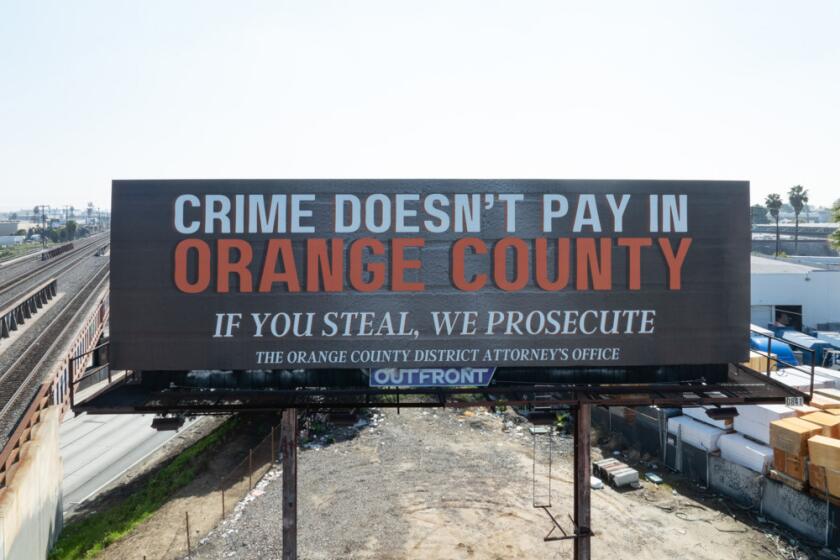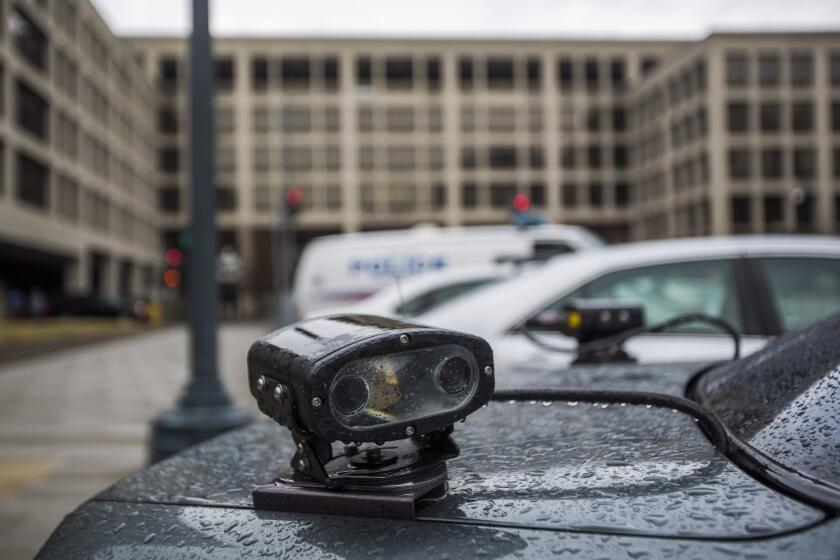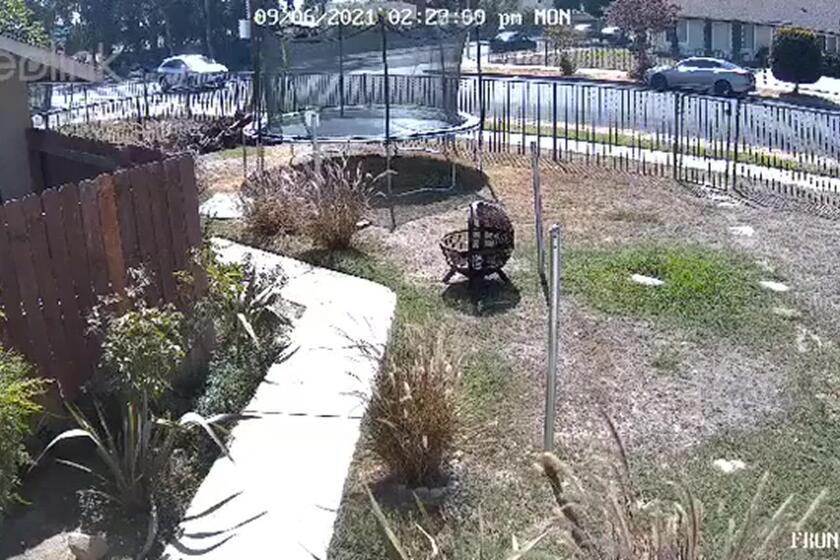License plate readers and video cameras are coming to Orange to fight crime, officials say

Joining other Southern California municipalities, Orange has announced plans to add dozens of license plate readers and video cameras to its streets in an effort to catch criminals traveling through the city.
The move represents a significant step forward for Orange, which is “a little bit behind the curve” in crime-fighting technology, Police Chief Dan Adams told the City Council this week.
The cameras will give police information on vehicles entering and exiting Orange, which can then be shared with other law enforcement agencies in neighboring cities to catch suspects on the move.
“The City of Orange is home to many retail establishments that are targets for organized retail theft, as well as other crimes, as perpetrators can quickly and easily access freeways in any direction and escape apprehension,” said a City Council staff report.
The license plate readers and video cameras “will provide greater deterrence, coverage, and more detailed information for law enforcement to solve cases,” the report said.
Orange is only the latest Southern California city to add the crime-fighting devices to its streets. Costa Mesa added 15 more license plate readers to its arsenal earlier this year, and the La Cañada Flintridge City Council approved the installation of 37 license plate readers in 2020.
Using bumper stickers, billboards and advertisements on public buses, Orange County prosecutors this month launched a public safety campaign aimed at deterring people from committing crimes there.
In 2021, a Melrose Avenue neighborhood group raised money to install plate readers after a series of robberies and shootings in the area.
The cameras don’t come without criticism. A state audit in 2020 found that license plate readers pose a significant privacy risk and said that law enforcement agencies did not provide adequate privacy protections for the images they capture.
The LAPD and other California law enforcement agencies have collected millions of license plate images with inadequate privacy safeguards, audit says.
Orange City Council approved an agreement this week with the Virginia-based consulting firm Insight Public Sector Inc. to lease 43 license plate readers and 13 video cameras for two years, costing the city just over $410,000.
City officials spent a year searching for funding for the technology, Adams said, until capital bond funds became available for the program.
The cameras themselves are made by Flock Safety, an Atlanta-based license plate recognition company.
“It’s not cheap,” said City Councilmember Jon Dumitru in an interview, “but you have to invest in all methods of crime fighting when you’re trying to keep your city at a low crime rate.”
The license plate readers will record the make and color of a vehicle and how many times it has driven past. The information is stored for 30 days.
Police can set up alerts for vehicles they’re looking for, but the cameras will not be used for traffic enforcement problems like speeding or red light violations. The cameras also don’t have facial recognition abilities.
The new technology will help catch existing criminals and deter future crimes, Dumitru said. Police Chief Adams said the installation could be completed in a few months.
A state task force arrested five people for staging a car wreck to defraud an insurer after the caper was recorded on a home security camera.
Dumitru has witnessed the effectiveness of such cameras firsthand, he said. He woke up one morning to find the back window of his truck smashed and items missing from inside. A camera pointed at his parking spot captured the license plate of a suspect vehicle.
Police entered the suspect’s plate into an information sharing system that spans other cities in the county. Later that day, license plate readers in Costa Mesa detected the same plate and an arrest was made.
“It becomes a giant regional effort,” Dumitru said. “I’m a huge proponent of this.”
More to Read
Sign up for Essential California
The most important California stories and recommendations in your inbox every morning.
You may occasionally receive promotional content from the Los Angeles Times.














